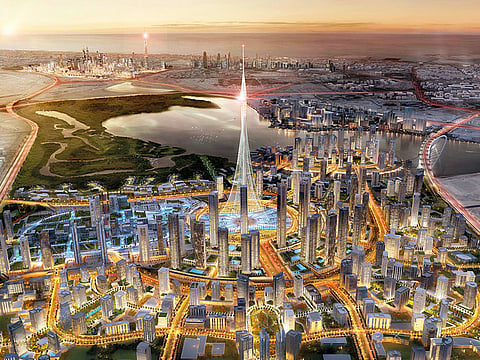Is now the time to be brave?
When the institutions start buying, individual real estate investors should take note

The most common question from potential buyers in today’s market must be, “is now the right time to buy?” The answer is far more reliant on an individual’s circumstance rather than a macro view of the market. However, in general terms a cyclical property market offers different opportunities at different times and I have always been a fan of the old Rothschild’s quote that the best time to invest is “when there’s blood in the streets” (the lowest point in the market cycle). However, the problem with investing when there is blood in the streets, is that it is scary and there is no way of knowing if the bottom has been reached. Most investors miss the window of opportunity as they sit on their hands, fearful of catching a falling knife, and by the time they realise the bottom has passed, it is too late.
Property prices in Dubai have been falling steadily now for four years since the last peak in 2014 and it is generally accepted that most full cycles last between 7 and 10 years. That would suggest we are due a reversal in market fortunes in the near future and I have been having more conversations recently with investors expressing a more bullish view of the market for the coming years.
Building for tomorrow
In the first half of the year we saw slightly more than 7,000 units handed over, but that number is likely to double in the third quarter and there are reports of up to 58,000 new units entering the market in 2019 and 2020. Who is going to buy and live in these properties? Surely such large numbers can only outstrip demand in the short to medium terms and put further downward pressure on prices?
The counter argument first points out that Dubai is building for the population of tomorrow, and in a city whose population has grown 1,000 per cent in the last 40 years, who would argue against that? With a relatively modest population in global terms of 3.1 million, there is plenty of room for growth, and if predictions of a population of 5 million by 2027 are correct, the long-term value for Dubai’s housing stock looks solid.
Secondly, it is highly unlikely that new-build delivery will reach 58,000, with many commentators suggesting that looking at past developer performance, delivery can be more in the region of 30,000 in the next two years.
Thirdly, a growing economy, rising oil prices and increase in government investment post VAT will have a positive impact on jobs and wages, and while interest rates have started to rise, EIBOR rises seem to be being managed sensibly, which should ease concerns of investors looking to leverage. Buyer sentiment has been helped by the welcome news of 100 per cent foreign ownership of companies and 10-year visas, which will encourage international investment, boost local entrepreneurship and give certainty and stability to residents.
Loosening the 25 per cent deposit criteria for mortgages would be a welcome boost, but as it stands we are already seeing increased activity from first-time buyers and homeowners attracted by today’s prices and looking to trade up.
Perhaps the biggest indication that buyer sentiment may be changing positively is the increase in activity from institutional investors. Large investors recognise that today’s prices represent extremely good value both in a historical and geographic sense. While rents have also dropped, yields have held firm on the back of reduced capital outlay, and with ENBD REIT reporting a modest growth in yield from 8.3 per cent to 8.4 per cent, there are more trusts and funds set to enter the market to take advantage of today’s prices. When the institutions start buying, individual investors should take note.
After the Expo
Finally, it is worth taking a moment to consider the World Expo 2020. There is the obvious economic activity on the lead-up to Expo that many people have spoken about in the past, but it is the post-Expo world that interests me more. It is predicted that 25 million to 30 million visitors will come to Expo 2020, and even if the numbers turn out to be somewhat lower, that is a huge number of people who will be exposed to Dubai for the first time.
Unlike previous Expo cities, Dubai is an expat city full of residents who visited once for business or leisure and decided to settle and there is a potential for a large increase in population to be seen post 2020, which could make today’s glut of property quickly turn into a shortage.
Richard Waind is the director of brokerage at Better Homes. The views expressed here are his own.



